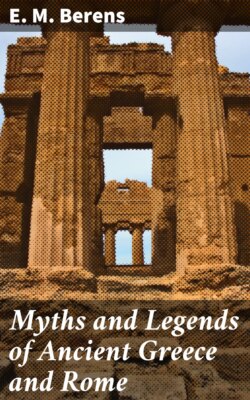Читать книгу Myths and Legends of Ancient Greece and Rome - E. M. Berens - Страница 11
На сайте Литреса книга снята с продажи.
ОглавлениеWith the defeat of Cronus and his banishment from his dominions, his career as a ruling Greek divinity entirely ceases. But being, like all the gods, immortal, he was supposed to be still in existence, though possessing no longer either influence or authority, his place being filled to a certain extent by his descendant and successor, Zeus.
Cronus is often represented as an old man leaning on a scythe, with an hour-glass in his hand. The hour-glass symbolizes the fast-fleeting moments as they succeed each other unceasingly; the scythe is emblematical of time, which mows down all before it.
SATURN.
The Romans, according to their custom of identifying their deities with those of the Greek gods whose attributes were similar to their own, declared Cronus to be identical with their old agricultural divinity Saturn. They believed that after his defeat in the Titanomachia and his banishment from his dominions by Zeus, he took refuge with Janus, king of Italy, who received the exiled deity with great kindness, and even shared his throne with him. Their united reign became so thoroughly peaceful and happy, and was distinguished by such uninterrupted prosperity, that it was called the Golden Age.
Saturn is usually represented bearing a sickle in the one hand and a wheat-sheaf in the other.
A temple was erected to him at the foot of the Capitoline Hill, in which were deposited the public treasury and the laws of the state.
